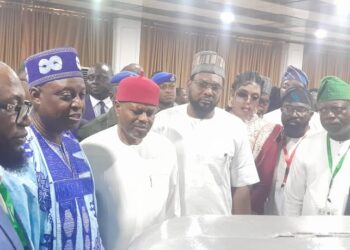The concept of a corruption-free customs service in Nigeria may seem ambitious, but it is an essential goal for fostering economic growth, ensuring fair trade practices, and enhancing the country’s global reputation.
Nigeria’s customs service has faced longstanding challenges related to corruption, which impede its effectiveness and erode public trust. Issues such as bribery, extortion, and collusion have been identified as systemic problems, contributing to revenue losses and fostering an environment of impunity.
Corruption within the customs service has significant economic implications for Nigeria. Revenue leakage resulting from fraudulent practices undermines the government’s ability to fund critical infrastructure projects, public services, and social welfare programmes. Combatting corruption within customs is, therefore, integral to economic development.
Embracing technology can streamline customs processes, reducing the opportunities for manual intervention and corruption. Automated systems for cargo tracking, risk assessment, and revenue collection enhance efficiency and transparency.
Implementing robust internal controls, including regular audits and checks, can deter and detect corrupt practices within the customs service. Transparency in recruitment, promotions, and disciplinary actions fosters a culture of accountability.
Engaging the public in the customs process through awareness campaigns and feedback mechanisms can act as a deterrent to corruption. The involvement of citizens creates a system of checks and balances, reducing the likelihood of malpractices.
Investing in the continuous training and development of customs personnel ensures that they are well-equipped with the skills and knowledge necessary to carry out their duties ethically. Emphasising integrity as a core value is essential.
Collaborating with international organisations and adopting best practices from countries with successful anti-corruption customs models can provide valuable insights and support for Nigeria’s efforts.
A transparent customs service facilitates accurate revenue collection, ensuring that the government receives the funds it needs to invest in national development projects.
A corruption-free customs service enhances Nigeria’s credibility in the international community, fostering positive trade relations and attracting foreign investments.
Transparent customs practices build public trust in government institutions. When citizens perceive fairness and honesty in customs operations, it contributes to overall confidence in the government.
Streamlining customs procedures reduces delays in cross-border trade, promoting efficiency and ease of doing business. This, in turn, encourages local and foreign businesses to thrive.
Achieving a corruption-free customs service in Nigeria is a complex but essential endeavor. The benefits extend beyond economic considerations, influencing the country’s global standing and fostering a culture of integrity. By implementing comprehensive strategies and fostering a commitment to transparency, Nigeria can chart a course towards a customs service that exemplifies professionalism, fairness, and accountability. The journey may be challenging, but the destination is one of economic prosperity and international respect.
















Between Depleting Workforce And Declining Productivity